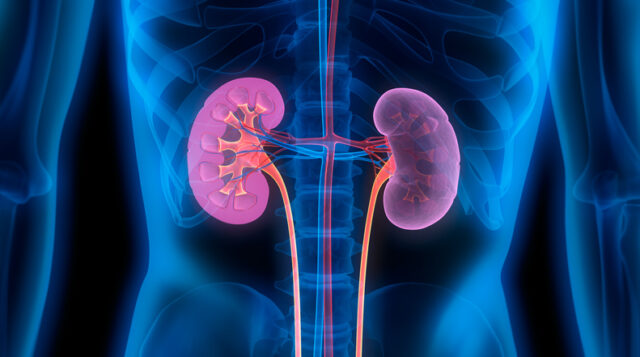
More than 90,000 Americans are waiting for a kidney transplant that could save their lives. Unfortunately, every day, 12 of those people die waiting for a transplant. The number of people who need a kidney transplant will continue to grow as more than 37 million people in the U.S. are living with kidney disease – yet an astounding 90% are not aware they have it. While the overall organ transplant patient pool is expanding, there just aren’t enough organs to meet current or future needs. We need to find a better way.
While more can, and should, be done to increase the efficiency, effectiveness, and fairness of our country’s kidney transplant system, we must recognize that our current healthcare system falls short by not doing enough sooner, before people with kidney disease find themselves in the position of needing a new kidney.
We need to invest more time, effort, and resources on the front end of care to reduce the need for transplantation in the first place. Early detection must be a priority, so that clinicians can initiate therapies to delay progression. We need the mindset that we consider it a failure each time a chronic kidney disease (CKD) patient progresses to a point where they need dialysis or a transplant. We will never have 100% success, but we can do better.
The progression of CKD from stage 1 to stage 5 (kidney failure) can be delayed by treating the other conditions that coexist and sometimes directly impact disease progression. This would include conditions such as cardiovascular disease, diabetes, and high blood pressure. Simple steps also include stopping smoking and addressing obesity. Better addressing these concerns in the earlier stages of the disease will also lower hospitalization risks, improving a patient’s journey while creating huge savings for patients and the healthcare system.
Kidney patients benefit when they have access to a nephrologist. No matter if it’s early or late in their progression, outcomes are better. Early kidney disease identification allows patients to have more time to work with their providers to effectively manage their CKD, slowing any need for dialysis or transplantation. Access to education empowers patients to make decisions which are appropriate for them. This is best accomplished when no one is rushed, rather than in a hospital setting after a patient has “crashed” into dialysis.
Our healthcare system must find ways to promote care models that break down any barriers to access to care. These same care models must encourage communication among caregivers across sites of care. No more silos. Let’s do away with the current fragmented system that focuses on volume not value. For too long, nephrologists and nephrology practices have operated in a traditional fee-for-service model that provides payments based on the services they deliver to a patient, rewarding the amount of care but not necessarily the quality of that care. Give physicians room to address barriers to care before a patient’s disease progresses. This will help ease the burden on the transplantation system and on patients themselves.
If we are going to move the needle on reducing the need for kidney transplants, we need to increase adoption of value-based care (VBC) arrangements that align provider incentives with patient outcomes in a pay-for-performance structure.
In VBC models, nephrologists are reimbursed for slowing kidney disease progression and offering 360-degree support to enable treatment of the whole person, not just a disease or collection of symptoms. VBC arrangements empower and encourage providers to offer support and services such as care coordinators, nutritionists, behavioral health specialists, and pharmacists, along with providing additional support like transportation. The goal is to prevent hospitalization by anticipating problems, then addressing them prospectively before it becomes a crisis.
People do not have to die waiting for a kidney. A VBC approach can very logically and naturally lead to earlier identification of kidney disease and better management in its earlier stages. Private and government insurers, along with policymakers, must continue to explore and adopt pay-for-performance models that can reduce the overall need, and wait time, for kidney transplants.
Photo: peterschreiber.media, Getty Images
Dr. George Hart brings a 30-year career in nephrology and as a practicing physician to his role as Chief Medical Officer for Interwell Health, a kidney care management company that partners with physicians on its mission to reimagine kidney care. He previously served as President of Metrolina Nephrology Associates in Charlotte, North Carolina where he led a practice of 80 providers, while also serving as a medical director for Fresenius Kidney Care. Dr. Hart has specialized in transplant nephrology and previously served as the medical director for the kidney and pancreas transplant programs at Carolinas Healthcare system (now Atrium Health) and as a Clinical Assistant Professor at UNC Chapel Hill. He earned his MD from Wake Forest University.








